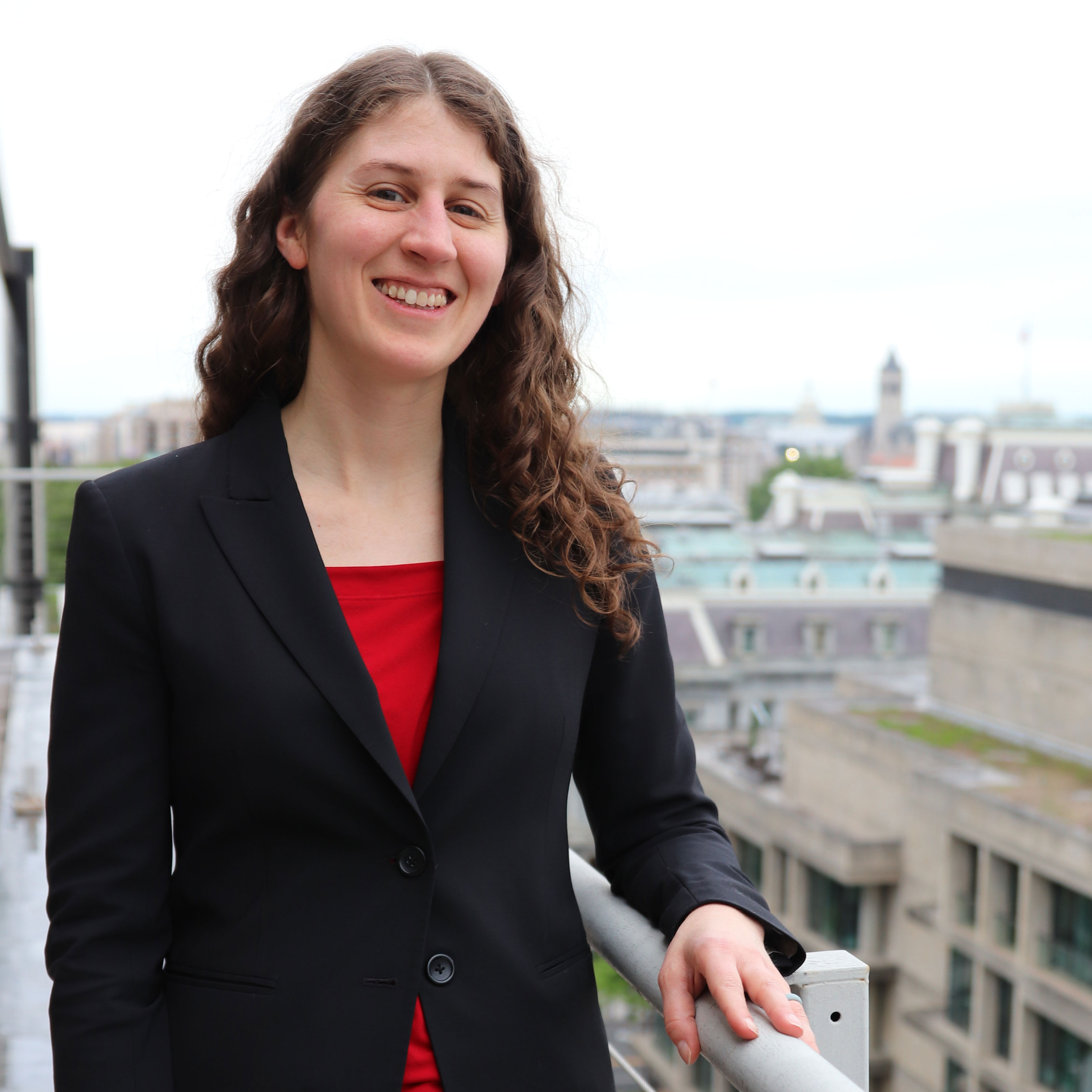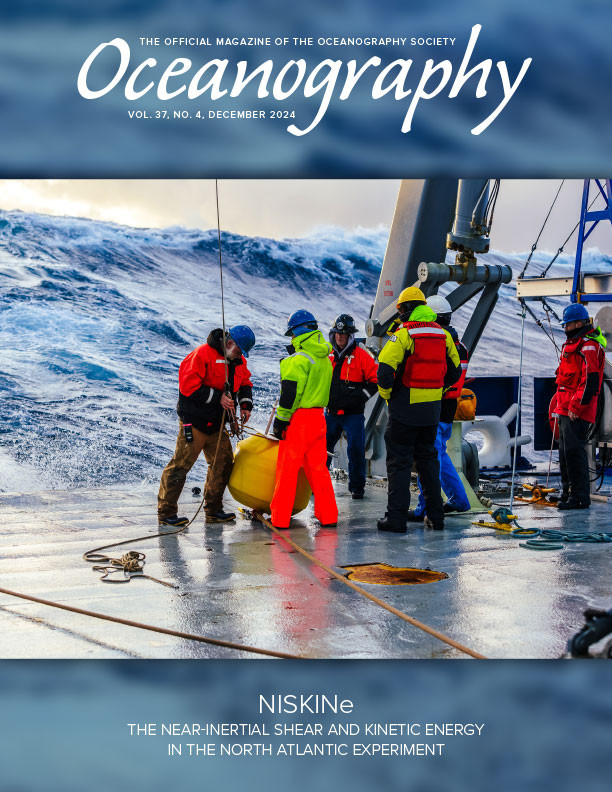Full Text
 |
CASSAUNDRA ROSE, Policy Advisor, Natural and Working Lands, US Climate Alliance
Degree: When, where, what, and what in?
I started my higher education in geology following a great education at a marine science magnet program in high school, where I learned that I didn’t want to be a marine biologist but still found the ocean fascinating. I was bitten by the paleoclimatology/paleoceanography bug at the University of Miami as a lab technician picking foraminifera in Larry Peterson’s lab. Although I transferred to Florida State University for my last year of college, I was able to keep learning about paleoceanography by playing with a lot of ocean sediment cores as a lab tech at the Antarctic Sediment Core Facility. Following that experience, I completed a master’s degree in geology at the University of California, Riverside, focused on the glacial/interglacial paleoclimatology of the Sierra Nevada Mountains (using lake sediment cores). I returned to the ocean during my PhD at Columbia University’s Lamont-Doherty Earth Observatory, where I studied the long-term aridification of northern Africa and associated changes in Mediterranean Sea circulation using ocean sediment cores and stable isotope analysis with foraminifera and biomarkers (putting those skills from my undergrad days to work!).
Did you stay in academia at all, and if so, for how long?
I immediately transitioned into the nonprofit sector following my PhD, managing a state and federal policy program at the American Geosciences Institute (AGI). During my PhD, I grew increasingly concerned about the impact that climate change is having on society; I’ve had a longstanding interest in policymaking, and I wanted to somehow help people by using my scientific knowledge.
How did you go about searching for a job outside of the university setting?
It was challenging! Fortunately, my PhD advisors were supportive of my desire to transition outside academia (not always a given). Unfortunately, very few folks in my department or at the Columbia career center had helpful advice for how to use a PhD in climate science outside of academia (though I think this is changing quickly as the climate crisis accelerates and more career options are opening up). I applied to jobs very widely, talked with people in different careers to learn what I was interested in pursuing and what I wasn’t attracted to, and got very lucky that the job opening at AGI was shared with my department via email right before I defended my dissertation.
With the benefit of perspective and hindsight, I have learned that there are so many career paths that Earth scientists can take outside of academia, and that a majority of Earth scientists do not follow the academic career path. With challenges like climate change, biodiversity and habitat degradation, environmental contamination, and much more, there is a huge need for people who have scientific training and understanding to get involved in policymaking. I have found that talking to people who have jobs that you think are cool is a great way to learn what paths exist for entering a variety of fields. Organizations such as AGI, the American Geophysical Union, and the Geological Society of America have great career path resources, internships, fellowships, and career boards to help students understand the different careers open to them and their skillsets (e.g., https://www.americangeosciences.org/workforce/career-resources).
Is this the only job (post-academia) that you’ve had? If not, what else did you do?
After spending a few years at AGI, I joined Governor Janet Mills’ Office of Policy Innovation and the Future in Maine as a senior science analyst and coordinator of the state climate council. I had the privilege of supporting the Maine Climate Council to create the state’s first four-year climate action plan, coauthor a report titled “Scientific Assessment of the Impacts of Climate Change in Maine,” and start to put the plan into action. This job was a great mix of using my scientific knowledge and skills, and using and building my communication, event management, and policy analysis skills.
What is your current job? What path did you take to get there?
In 2023, I joined the US Climate Alliance, a bipartisan coalition of 24 US governors who are working to secure America’s net-zero future through state-led, high-impact action, as a Natural and Working Lands Policy Advisor. I was fortunate to work with the Alliance while working for Governor Mills and have really enjoyed supporting states and territories across the country that are implementing agricultural, forestry, and coastal and ocean climate policies.
What did your oceanographic education (or academic career) give you that is useful in your current job?
Looking back at my academic days, I’ve realized that developing climate and oceanographic expertise was incredibly helpful, but the skills I developed in project management, grant writing and management, collaboration, mentorship, communication, and even event management are things that I use every day in my current career. I’d love to see oceanographic and other Earth science educational programs think hard about what skills they’re helping students to develop in addition to the scientific expertise those students are gaining, and to help students think through the myriad career paths they could pursue with a solid skillset. Scientific training can prepare you for a huge variety of careers, not only because of what you know about the ocean or climate but also because of the skills you bring to the table, which is what most non-academic hiring managers are seeking.
Is there any course or other training you would have liked to have had as part of your graduate education to meet the demands of the job market?
Besides wishing I had taken a few policy courses, more explicit training on grant writing and budgeting, project and time management, and effective communication with a wide variety of audiences would have been very helpful. These skills are all critical for success inside and outside of academia, but they are often picked up organically by students throughout their training as opposed to being taught and supported by departments explicitly. It seems that this disconnect is changing in many colleges and universities and within scientific societies, but it would still be good to see the diversification of scientific training to prepare students for a wide variety of career paths.
While I was a graduate student and afterward, I often read and heard about the “leaky academic pipeline,” where talented scientists were unable to get positions in academia. There is an opportunity to recognize that there are many extremely rewarding, impactful career paths outside of academia that departments could embrace as part of designing student education.
Is the job satisfying? What aspects of the job do you like best/least?
I find working in climate policy to be extremely satisfying, while occasionally challenging and frustrating when progress seems to be slow. Working in and with state governments has allowed me to see the tangible impacts of my work helping people and communities, while also allowing me to learn new things about climate policy around the country. I have been fortunate to be the scientific expert in the room supporting policymakers as they use the best information available to make decisions, and I have spoken up when something just isn’t supported by the data to ensure that public resources aren’t being spent unwisely. I really appreciated and enjoyed my time doing climate research, but I get to use that training all the time in my day job and feel like I’m making an impact to help people, which is a huge honor.
One aspect of my chosen career that I particularly enjoy is that it is incredibly collaborative. This field draws people with expertise not just in climate science but also in planning, economics, natural resources, art, music, and much more; projects are typically done collaboratively with colleagues daily, and there are always opportunities to learn from people with very different training and backgrounds. Academia can certainly be collaborative, but the climate policy world thrives on collaboration, so I rarely feel that I am on my own trying to figure something out.
Do you have any recommendations for new grads looking for jobs?
In addition to what I’ve already mentioned, I wish that I had been confident enough to try an internship or fellowship outside of academia during or right after graduate school. These experiences can be great ways to learn what it’s really like to work in a different field, and you also build connections with other people that can lead to opportunities down the road. Networking feels really big and scary as a new graduate; however, reaching out to people who are doing work or have had experiences in careers that you find interesting is a great way to make connections and learn if you might actually enjoy doing something or if it isn’t for you. People usually enjoy talking about what they do, so I recommend emailing or giving them a call to get started. You can find people at conferences and career fairs and on LinkedIn, or just ask your current network to see who knows people working in a field that you find interesting. You never know what connections you can make.

